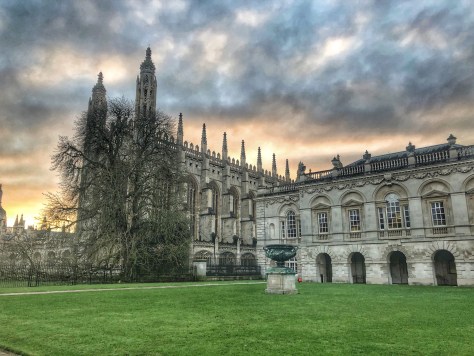
Having spent most of last week, I spent time on Monday clearing my inbox. I realised that my email address is on lots of mailing lists, and I did some unsubscriptions or added rules to my inbox.
Had a meeting with SURF discussing the smart and intelligent campus space. They are working in this space, and we have agreed to continue to discuss and share what we are doing. SURF are the NREN for the Netherlands. They had seen the guide we published.
Attended HEAnet Group Advisory Forum meeting. Their new strategy has many similarities to Jisc’s (new) strategy. Useful insightful meeting with Irish universities (and colleges) facing many of the issues that the UK is facing.
Spent some of the week in Cambridge at the LILAC 23 Conference.
No I didn’t go punting.

I was last at LILAC delivering a keynote on digital capability when it was in Dublin in 2016. This did make me think why I hadn’t been since then. Part of it was in 2017 and 2018 I had moved away from digital capabilities into the intelligent campus landscape, and the apprenticeship space. Delving into the LILAC community wasn’t a priority in those areas. In March 2019 I got a new role, part of which was looking at the HE sector. Of course the following March we went into lockdown, LILAC 2020 was cancelled. LILAC 2021 was online. I was on leave when LILAC 2022 was happening in Manchester. So when I was looking at events and conferences to attend in 2023, LILAC was on my list. I did manage to find the time to attend.

LILAC 23 was an excellent conference, and really useful to see the library and information professional services view and perspective. AI was certainly the elephant in the room.

Posted some sketch notes of various sessions.
Information Literacy and podcasting: teaching and learning through conversation
Accessibility – what does it mean for libraries and education?
Discussed the publication process for the forthcoming Guide to the Intelligent Library.
Continued the planning for the Intelligent Campus Community Event.
Continued research into AI specifically AI imaging and voices.

On Friday I was in London for the third of the Senior Education and Student Experience Group meetings, this was a meeting to accommodate those who had been unable to make the previous Monday meetings. We had an expected lower turnout, but still had some excellent, useful, and interesting conversations.
My top tweet this week was this one.

















